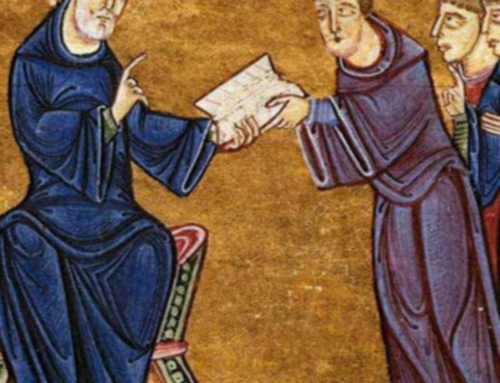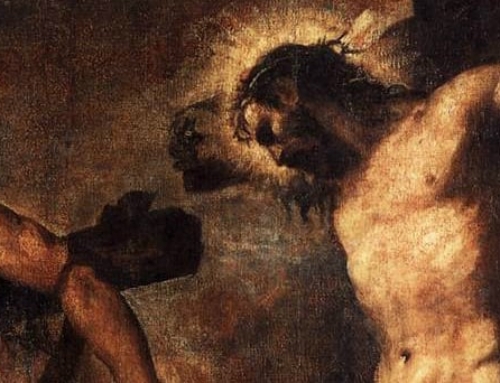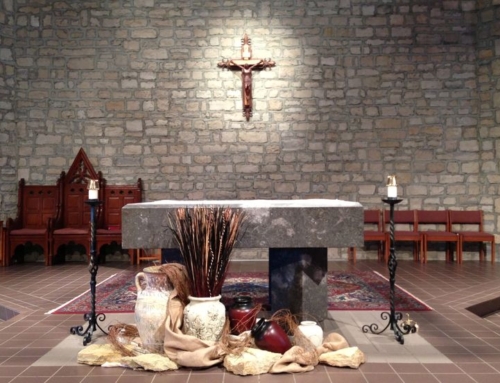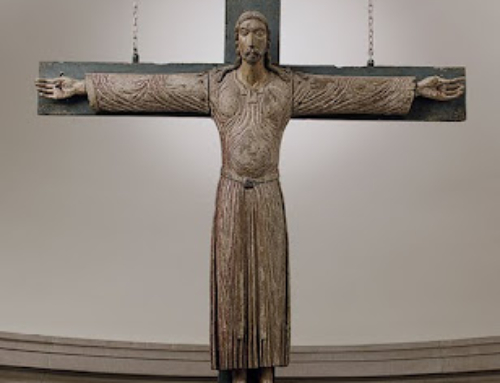OK. I admit it. The title of this post was sort of click-bait-ish.
I’m not really proposing the abolition of the doctrine of transubstantiation, but suggesting that Catholics stop using the term “Real Presence”. This older article from my time over at Patheos helps explain why.
Put simply the term “Real Presence” is a term coined by the Reformers in the Anglican church to embrace a high view of the Eucharist while denying transubstantiation
The proper Catholic use of the term is “the Real Presence of Our Lord’s Body, Blood, Soul and Divinity in the sacrament of the altar” but that is a bit of a mouthful (as it were) so Catholics have drifted into the use of “Real Presence” for short.
But this term is an Anglican term and is confusing. Indeed, it is not only Anglican. I have heard Baptists use the term saying, “I believe in the Real Presence” and what they mean by that is “I feel especially close to Jesus when we have a communion service once a month after the main worship service.” What do Anglicans mean by the term? I guess you have to ask your Anglican. If he is low church he probably means much the same as the Baptist except he grants the Bread and Wine an extra level of symbolism and celebrates with a set liturgy and more reverence. A Broad church Anglican (and some low church folk) may believe in receptionism which is classic Anglicanism–that the Bread and Wine become the Body and Blood of Christ as the individual believer receives the sacrament in faith. An Anglo Catholic will claim to believe in the Real Presence in a much more Catholic way.
But what none of them believe (because their statement of faith forbids them to) is the Catholic doctrine of transubstantiation. This doctrine is not the same as belief in “The Real Presence”. Why do so many Catholics not believe in transubstantiation? For the same reason Protestants don’t: because they don’t really understand the theology and philosophy behind it. When most people say they don’t believe in “The Real Presence” or in transubstantiation they are saying they don’t believe the bread and wine physically and materially become human flesh and blood. That’s ok not to believe that because that is not what the church teaches.
Not to believe that is on the level of not believing the Pope is infallible when he predicts the weather.
The philosophy in which the doctrine is grounded is Aristotelian. The core of Aristotle’s philosophy is that the invisible realities are embedded and made real to us in and through the material, physical realities. The eternal invisible reality of a thing is its “substance” and it is this level of the bread and wine that become the “Real presence of Christ’s body, blood, soul and divinity.” If you are interested to learn more about the history and development of the Catholic belief this paper presented for a degree in theology by Patrick Selwood is worth reading.
The “real Presence” is a misleading and ambiguous term and I believe its use has contributed to the widespread heretical understandings of the Eucharist held by so many Catholics. These misunderstandings are that the Lord’s presence is merely symbolic or spiritual. These false understandings go back 1,000 years to the medieval theologian Berengar of Tours.
Instead of “Real Presence” I think we should simply refer to the consecrated bread as “the Body of Christ” and the wine as “the Precious Blood”. This is consistent with Catholic belief and is unambiguous.







Leave A Comment
You must be logged in to post a comment.